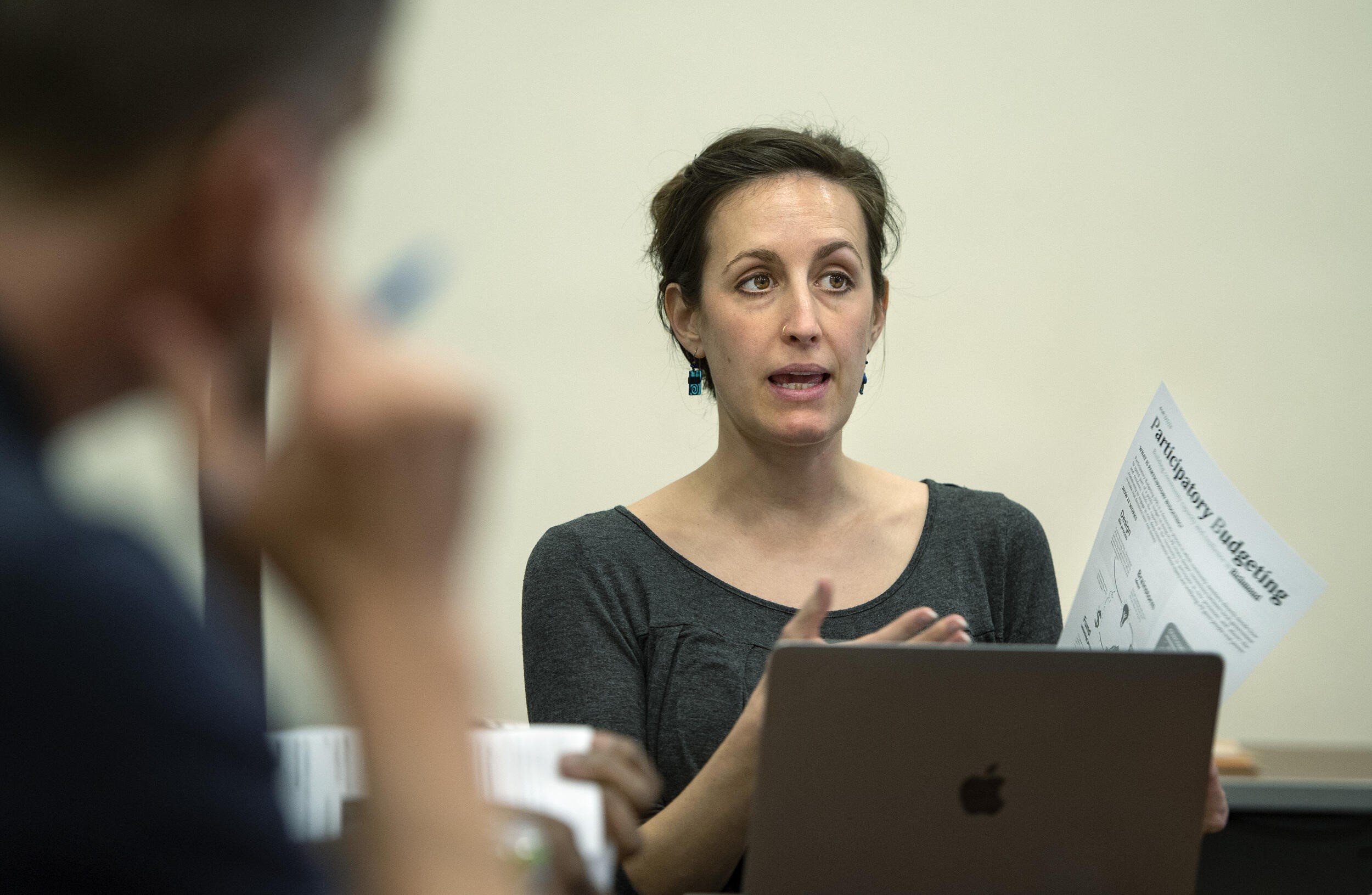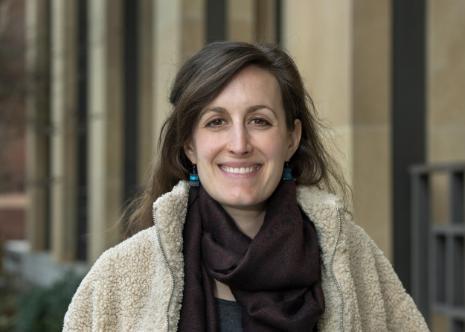News
VCU urban planning student helps ‘a very hopeful experiment’ take root in Richmond

by Dina Weinstein
With the rollout expanding this fall, Adelaide Alexander says participatory budgeting elevates social awareness and community engagement.
From the discrimination of redlining to the upheaval of redevelopment, Virginia Commonwealth University student Adelaide Alexander is well-versed in how top-down governing can diminish communities. But this past semester, the master’s student in urban and regional studies and planning got hands-on experience in a newer direction of her field.
Alexander served as an intern with RVA Participatory Budgeting, a partnership between the city of Richmond and residents that amplifies their role in urban planning. Dating to the 1980s in Brazil, PB has spread around the world as a way for residents to help decide how public funds can address community needs.
“Participatory budgeting (PB) is a very hopeful experiment. It’s something that is happening in more and more cities,” said Alexander, who has worked as a community organizer in New York and Virginia on issues including housing, labor, education and environmental justice.
“Right now, it's a small group of people. We need to know what the priorities for people in neighborhoods around the city are, especially those that have been neglected for decades." – Adelaide Alexander
“PB is in line with where the field of urban planning wants to go in terms of reckoning with its past support for top-down policies like urban renewal that caused racial segregation, displacement and ultimately a lot of harm,” Alexander said. “In the urban planning field academically, it's clearly recognized that the higher the level of community participation and control, the better the outcomes in terms of equity for the community.”
Participatory budgeting is a years-long process, and funds are tied to Richmond’s capital improvement budget for physical infrastructure. The city of Richmond has promised $3 million per cycle to PB for five cycles, for a total of $15 million, plus additional money to hire staff to start and run the program.
That is just a small portion of the city’s budget, which is roughly $3 billion for the new fiscal year. The project will progress over three cycles, from preparation to project implementation, with an eye toward financial equity, community impact and community building.
Brittany Keegan, Ph.D., director of research promotion and engagement at VCU’s L. Douglas Wilder School of Government and Public Affairs, acted as a consultant for two parts of the project. In fall 2022, she explained to the commission how to create a logic model, which helps envision outcomes and how to achieve them. In spring of this year, she led a presentation on evaluating the PB process.
“Most of the work and the research done by the Wilder School focuses on social equity,” Keegan said. “I hope that our work can help inform the commission to make the decisions that they think are best, which will, in turn, help the community.”
In the past academic year, the commission researched how PB has rolled out in other locations, such as Durham, North Carolina. The panel is close to finishing the rulebook for its work, and its members – residents from all nine City Council districts, including public housing – are shaping the structure of the process, including communications, engagement and evaluation.
Preparing for community engagement
As an intern, Alexander worked under the supervision of Matthew Slaats, a consultant with the city and a doctoral student at University of Virginia studying grass-roots processes. He said Alexander played a pivotal role in the planning stages of the PB initiative.
“Over the semester, she developed and prepared resources that will support a citywide engagement and education process that is going to take place starting in the fall of 2023 through the start of the official process in the summer of 2024,” Slaats said. “The goal of this is to prepare the broader community to understand how PB will work in Richmond and the ways the community can participate, bringing valuable resources into their neighborhoods.”
During her internship, Alexander also recorded conversations with community leaders about what participatory budgeting is, why they are excited about it and why residents should participate. She noted her session with Ebony Walden, an urban planner, about how PB can build bridges with community members who historically have been left out of the process.
“She beautifully expressed that hope for the program and ideas about how it could actually happen,” Alexander said. “Similarly, Flor [Lopez, a language justice interpreter and community organizer] spoke to the disengagement and marginalization of Latin American communities [in Richmond] and what this program would need to do to bridge that gap and bring folks to the table that haven’t had access to decision-making power in a meaningful way.”
The complexities of improvement
Alexander sees PB as a way for cities and urban planners to reprioritize infrastructure and capital improvements, and her internship gave her deeper insight into Richmond’s systems.
“I hadn't appreciated how complex it is to start a participatory budgeting process,” said Alexander, who balanced coursework and work as a teaching and research assistant in the recent semester. “It’s a simple idea, but actualizing it is complicated. There are a lot of parameters on what the money can be used for, and then there’s also the challenge of transforming people's visions for their community into specific budget proposals that the city can act on.”
She enjoyed the discussions on sending more funds to districts that are underfunded or vulnerable in different ways, and how to approach citywide proposals as well as the design of ballot initiatives.
“It gave me appreciation of how difficult and complex local governance is, even when intentions are aligned and there’s clarity that prioritizing underserved and marginalized communities is a priority,” Alexander said. “What that actually looks like is not always super clear or easy.”
As her academic and professional journeys advance, she hopes to stay involved in the PB commission as a city resident who wants to improve Richmond. And as outreach about the process expands this fall, Slaats hopes more VCU students and staff get involved.
Alexander noted that residents often have mentioned street and pedestrian safety, such as speed bumps and sidewalks, as key issues. She hopes more voices will join the PB conversation.
“Right now, it's a small group of people,” she said. “We need to know what the priorities for people in neighborhoods around the city are, especially those that have been neglected for decades.”
This story originally appeared on VCU News.
